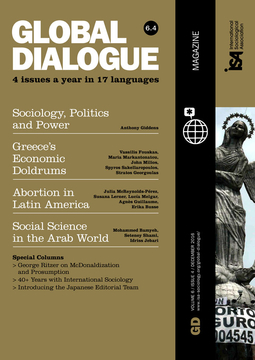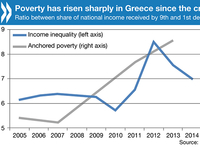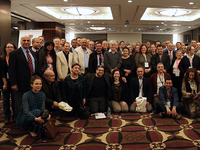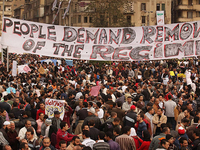GD 6.4 - December 2016

Global Dialogue is available in multiple languages!
Select the language to download the issue.
Editors:
Michael Burawoy.
Associate Editor:
Gay Seidman.
Managing Editors:
Lola Busuttil, August Bagà.
Media Consultant:
Gustavo Taniguti.
Consulting Editors:
Margaret Abraham, Markus Schulz, Sari Hanafi , Vineeta Sinha, Benjamín Tejerina, Rosemary Barbaret, Izabela Barlinska, Dilek Cindoğlu, Filomin Gutierrez, John Holmwood, Guillermina Jasso, Kalpana Kannabiran, Marina Kurkchiyan, Simon Mapadimeng, Abdul-mumin Sa’ad, Ayse Saktanber, Celi Scalon, Sawako Shirahase, Grazyna Skapska, Evangelia Tastsoglou, Chin-Chun Yi, Elena Zdravomyslova.
REGIONAL EDITORS
Arab World: Sari Hanafi , Mounir Saidani.
Argentina: Juan Ignacio Piovani, Pilar Pi Puig, Martín Urtasun.
Bangladesh: Habibul Haque Khondker, Hasan Mahmud, Juwel Rana, US Rokeya Akhter, Toufi ca Sultana, Asif Bin Ali, Khairun Nahar, Eashrat Jahan Eyemoon.
Brazil: Gustavo Taniguti, Andreza Galli, Ângelo Martins Júnior, Lucas Amaral, Benno Alves, Julio Davies.
India: Ishwar Modi, Rashmi Jain, Jyoti Sidana, Pragya Sharma, Nidhi Bansal, Pankaj Bhatnagar.
Indonesia: Kamanto Sunarto, Hari Nugroho, Lucia Ratih Kusumadewi, Fina Itriyati, Indera Ratna Irawati Pattinasarany, Benedictus Hari Juliawan, Mohamad Shohibuddin, Dominggus Elcid Li, Antonius Ario Seto Hardjana.
Iran: Reyhaneh Javadi, Abdolkarim Bastani, Niayesh Dolati, Marjan Namazi, Vahid Lenjanzade.
Japan: Satomi Yamamoto, Yutaro Shimokawa, Shinsha Kameo, Mizuki Ichikawa, Hayato Ishihara, Hiroki Kawabata, Hiromi Murakami, Kenta Kajitani, Kento Kusudo, Hirotaka Tanaka, Chiye Yamada.
Kazakhstan: Aigul Zabirova, Bayan Smagambet, Adil Rodionov, Gani Madi.
Poland: Jakub Barszczewski, Adrianna Drozdrowska, Krzysztof Gubański, Justyna Kościńska, Kamil Lipiński, Mikołaj Mierzejewski, Karolina Mikołajewska-Zając, Adam Müller, Zofi a Penza, Teresa Teleżyńska, Anna Wandzel, Justyna Zielińska, Jacek Zych.
Romania: Cosima Rughiniș, Corina Brăgaru, Nicoleta-Mădălina Ailincăi, Costinel Anuța, Adriana Bondor, Alexandra Ciocănel, Tatiana Cojocari, Andrei Dobre, Iulian Gabor, Ștefania Cristina Ghiocanu, Alexandra Isbășoiu, Rodica Liseanu, Mădălina Manea, Anca Mihai, Andreea Elena Moldoveanu, Rareş-Mihai Muşat, Oana-Elena Negrea, Mioara Paraschiv, Ion Daniel Popa, Ioana Silistraru, Eliza Soare, Adriana Sohodoleanu, Diana Tihan, Elena Tudor, Carmen Voinea, Raisa-Gabriela Zamfi rescu.
Russia: Elena Zdravomyslova, Anna Kadnikova, Asja Voronkova.
Taiwan: Jing-Mao Ho.
Turkey: Gül Çorbacıoğlu, Irmak Evren.
GD 6.4 - December 2016
Editorial
Looking Back, Looking Ahead
This issue continues to look backwards and forwards, refl ecting on the last six years of Global Dialogue, and the swing from effervescent social movements – Indignados, Occupy, Arab Spring, etc. – to movements of the right that have installed authoritarian regimes in Egypt, Turkey, Poland, Hungary, Philippines, Argentina, and Brazil. This global trend may be traced in part to the storms of an international capitalism that runs roughshod over nation states, sapping governmental autonomy and discrediting offi cial, electoral politics, leading to populism of both the right and the left – though increasingly of the right.
It is fitting, therefore, that we should open this issue with an interview with Anthony Giddens, theorist and publicist of what he once called the juggernaut of globalization. In his political guise, as a member of the House of Lords, he continues to champion the issues that concerned him as a sociologist – issues such as climate change and the implications of the digital age.
The underside of globalization can be found expressed in the fate of SYRIZA, the movement that nearly brought the EU to its knees but in the end, with power reversed, has brought Greece to its knees. Here we publish fi ve articles that narrate the disastrous consequences of austerity imposed on Greece by the European Union, bringing untold poverty to Greece, but also untold riches to its upper classes.
In Latin America, in reaction to a decade or more of social democracy – the so-called pink tide – country after country succumbs to a rightward shift. Here we publish three articles on the winds of change as refl ected in struggles around abortion. Innovative protest has led to clashes with the state in Argentina, Mexico and Peru. Especially interesting is the struggle over the use of common medication to avoid or interrupt pregnancy.
We have three perspectives on the fate of Arab social science. The discussion is sparked by the fi rst report on the state of the discipline authored by Mohammed Bamyeh. He begins the symposium with a summary essay, followed by Seteney Shami’s insistence on the importance of changing social science infrastructure. Idriss Jebari poses critical questions about the implications of the Arab Spring and its denouement, raising the possibility that it continues to give vitality and new directions to social science.
We publish an extract of an interview with the well-known sociologist, George Ritzer, conducted by Labinot Kunushevci, a young and enterprising sociologist from Kosovo. Edward Tiryakian offers us a glimpse into the past with his reminiscences of ISA congresses, starting in 1974. We end with the introduction of the Japanese editorial team led by Satomi Yamamoto who inspires her students to devote themselves to the ardors of translation. In this connection, I’m delighted to announce the inauguration of Global Dialogue’s 17th language – Bengali – organized by a team of enthusiastic sociologists stationed in Dhaka (Bangladesh) and led by Habibul Khondker.
Michael Burawoy, editor of Global Dialogue
Global Dialogue can be found in multiple languages.
Submissions should be sent to globaldialogue@isa-sociology.org.













